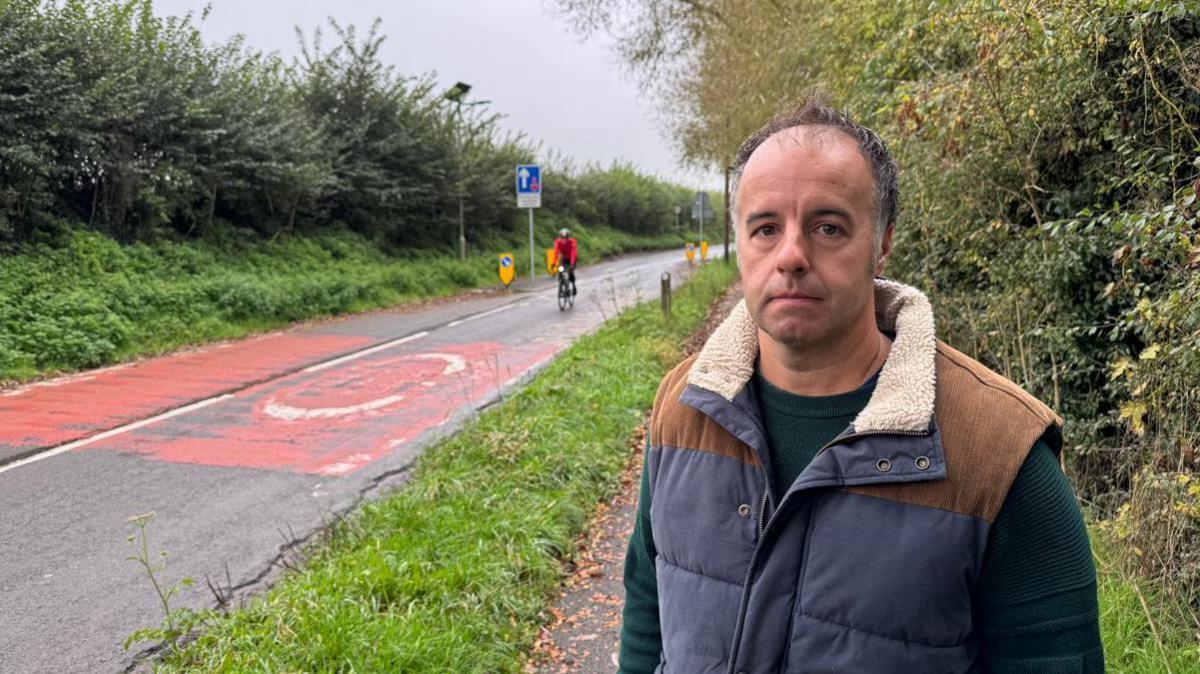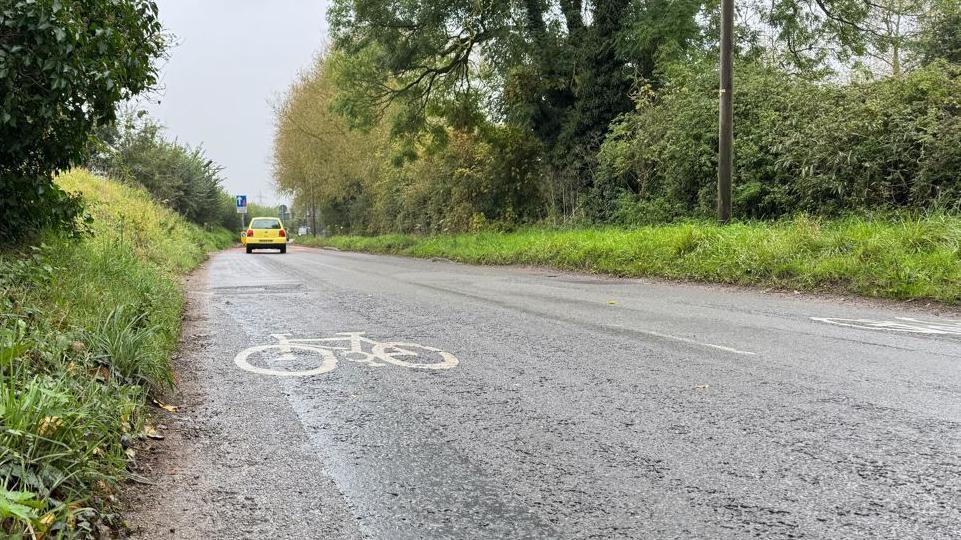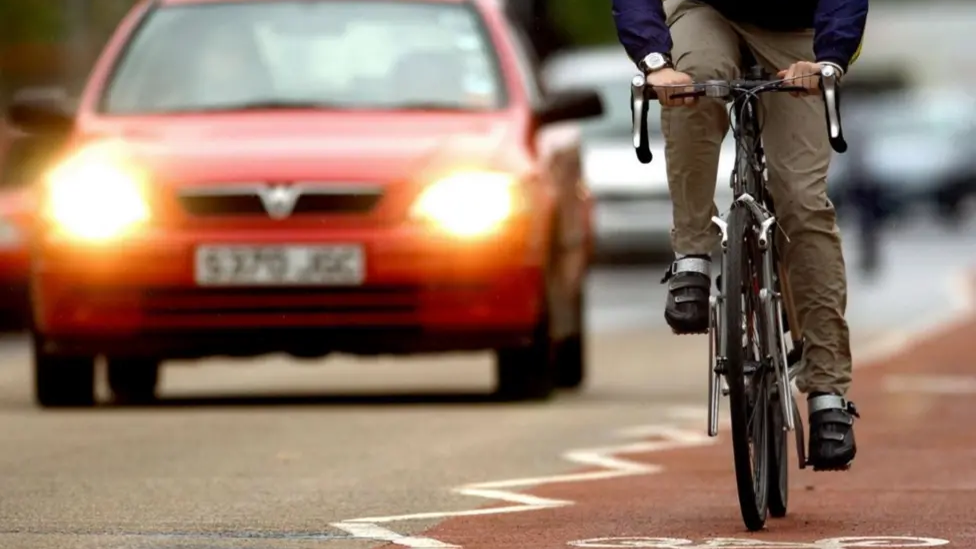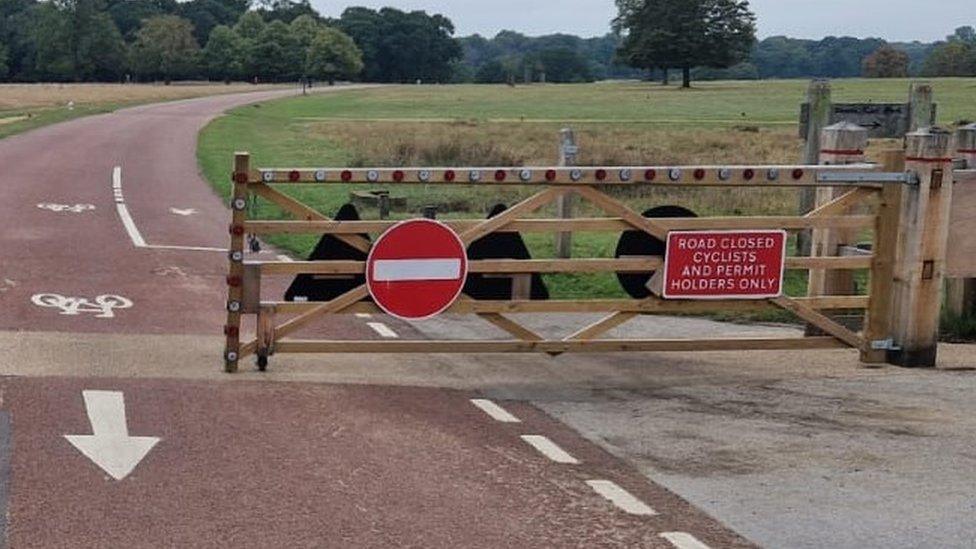PCC admits delays in prosecuting dangerous drivers

Mr Hayward said he had suffered verbal abuse from drivers while cycling
- Published
A cyclist who endured verbal abuse from drivers has been told that his reports of dangerous driving cannot be processed due to shortage in police resources.
Paul Hayward from Didcot, Oxfordshire, said he had made multiple footage submissions to Thames Valley Police before writing to the Police and Crimes Commissioner (PCC) Matthew Barber.
The PCC office said lack of staff meant that sometimes it could not send out prosecution notices to the offending drivers on time.
Mr Hayward said cyclists felt "on our own out there".

The PCC office said cases of dangerous driving would be dealt with "as priority but in line with other competing demands on the department"
He was recently cycling on the Drayton Road, on the outskirts of Sutton Courtenay, when a car started coming at him "at speed".
"I couldn't see why he beeped me, so I continued to go round," he said.
"When I got through the traffic calming measure, he close passed me, drew alongside me, looked me dead in the eye and verbally abused me."
Mr Hayward said the driver had been pointing towards the cycle lane and "continued to stare" at him going along the road.
"I honestly thought I was going to get hit."
He said that after about 15 seconds, the car had gone off at speed.
"I believed he was down the end of the road, waiting for me."
Mr Hayward reported the incident and asked for it to be considered as both a close pass and a common assault.
After hearing nothing back, he then sent the footage to Mr Barber.
In a written reply seen by the BBC, the PCC office acknowledged the "very valid concerns" but added that the traffic team was dealing with "shortage in staff".
"I have discussed this issue with Mr Barber who is equally concerned that the shortage in resources means that, on occasions, Notice of Intended Prosecutions are not able to be sent to the offending driver within the legal timeframe of 14 days from the incident occurring," the letter reads.
It added that the traffic team had implemented processes for those specific cases to be dealt with "as priority but in line with other competing demands on the department".
Mr Hayward said he was in "disbelief and shock" at the reply.
"It's a position where you think it's not 'if', it's 'when' you're going to get hit and no action has been taken," he said.
"And how are we going get normal people to commute to work cycling if they're aware the roads are so dangerous and no action has been taken, no prosecutions are being made and drivers are not being educated or stopped?"
Get in touch
Do you have a story BBC Oxfordshire should cover?
You can follow BBC Oxfordshire on Facebook, external, X (Twitter), external, or Instagram, external.
Related topics
- Published4 October 2024

- Published4 October 2023
